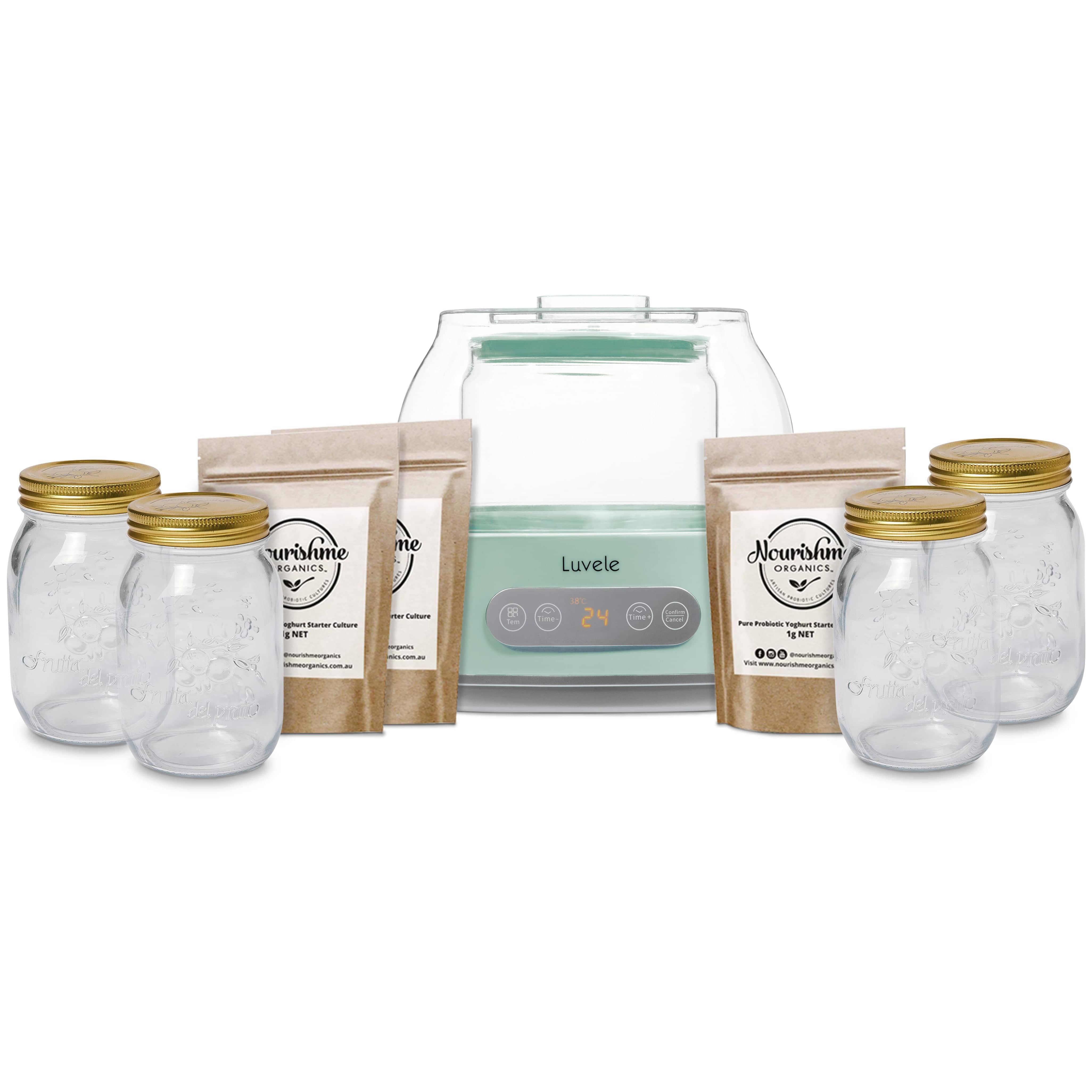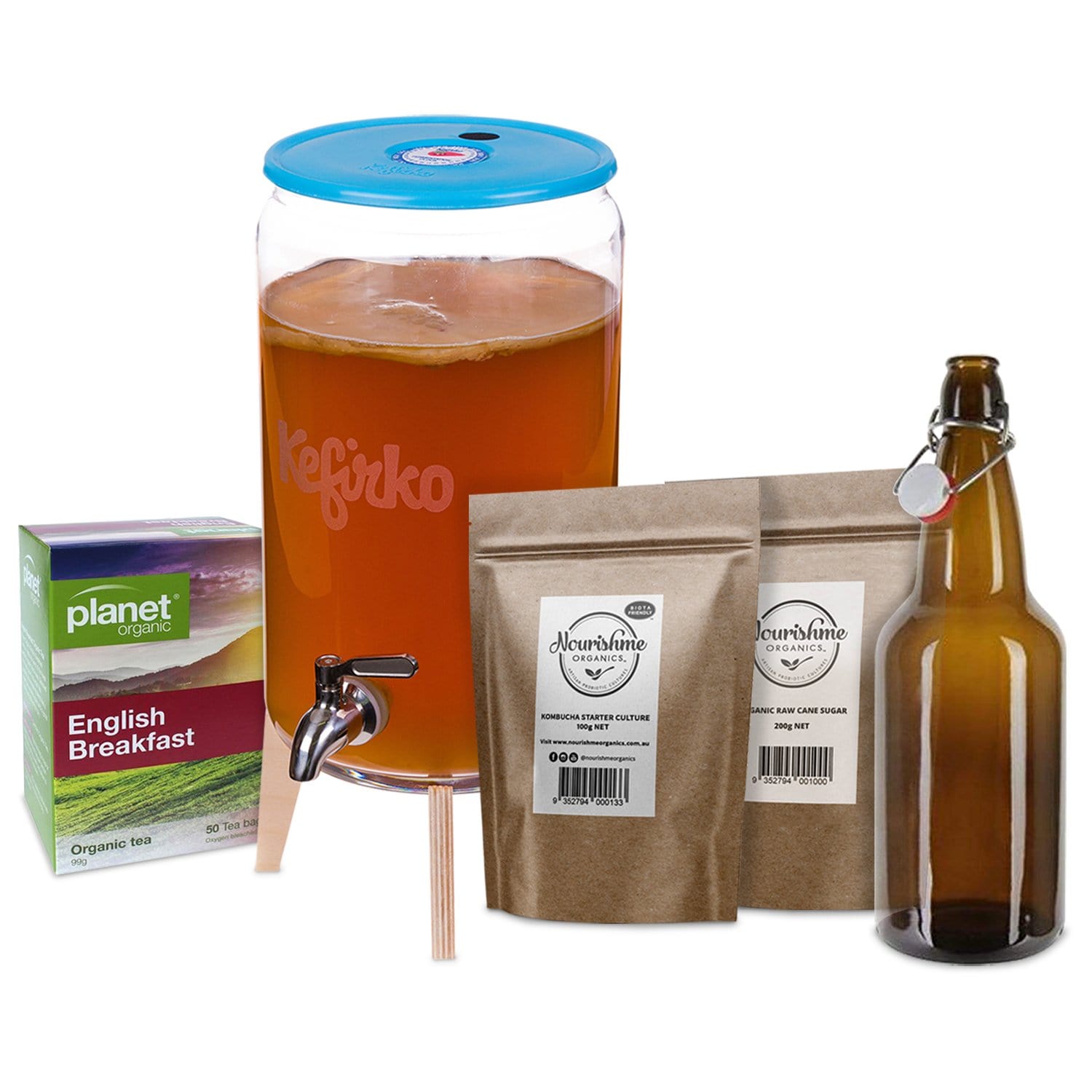Apakah makanan fermentasi bersifat anti-inflamasi? - Temukan manfaatnya

Apa itu fermentasi?
Fermentasi adalah proses metabolisme alami di mana mikroorganisme seperti ragi dan bakteri mengubah gula dan pati menjadi senyawa lain, yang sering kali menghasilkan alkohol atau asam laktat sebagai produk sampingan. Fermentasi telah menjadi bagian tak terpisahkan dari tradisi kuliner manusia selama ribuan tahun, berfungsi sebagai metode untuk mengawetkan makanan dan meningkatkan rasanya.
Makanan fermentasi khas dan komponennya
Makanan fermentasi merupakan kelompok produk beragam yang ditransformasikan oleh bakteri, ragi, dan mikroorganisme bermanfaat lainnya. Makanan ini tidak hanya memperoleh rasa dan tekstur yang unik, tetapi juga menjadi kaya akan probiotik, enzim, dan senyawa peningkat kesehatan lainnya. Beberapa makanan fermentasi yang populer meliputi:
- Yogurt: Diproduksi dengan memfermentasi susu dengan kultur bakteri, kaya akan bakteri menguntungkan seperti Lactobacillus dan Bifidobacterium.
- Sauerkraut: Kubis yang difermentasi kaya akan strain Lactobacillus, juga menawarkan dosis serat dan vitamin.
- Kimchi: Makanan pokok Korea pedas yang terbuat dari sayuran yang difermentasi, mengandung probiotik dan antioksidan.
- Kombucha: Minuman teh bersoda yang difermentasi oleh kultur simbiosis bakteri dan ragi (SCOBY), dikenal karena asam dan enzimnya yang bermanfaat.
- Miso: Bumbu dapur Jepang yang diproduksi dengan memfermentasi kacang kedelai, kaya akan spesies Lactobacillus dan Aspergillus.
Apa itu peradangan?
Peradangan merupakan bagian alami dan krusial dari mekanisme pertahanan tubuh kita. Pada intinya, peradangan merupakan respons yang diprakarsai oleh sistem imun untuk melindungi diri dari penyerang berbahaya seperti bakteri, virus, atau cedera. Saat ancaman terdeteksi, sistem imun melepaskan protein, antibodi, dan peningkatan aliran darah ke area yang terkena, yang menyebabkan tanda-tanda klasik peradangan akut: kemerahan, panas, bengkak, dan nyeri.
Namun, tidak semua peradangan bermanfaat. Sementara peradangan akut merupakan respons jangka pendek terhadap ancaman tertentu, peradangan kronis berlangsung dalam jangka waktu yang panjang dan dapat merugikan kesehatan kita. Tidak seperti serangan terarah pada peradangan akut, peradangan kronis dapat menyebar luas, yang menyebabkan sistem kekebalan tubuh secara keliru menyerang jaringan dan organ yang sehat.
Beberapa faktor, termasuk stres berkepanjangan, pola makan tidak sehat, kurang olahraga, dan paparan racun, dapat menyebabkan peradangan kronis. Seiring waktu, peradangan kronis berperan dalam perkembangan berbagai kondisi kesehatan seperti penyakit jantung, diabetes, radang sendi, dan kanker tertentu.
Memahami peradangan sangat penting karena hal ini menggarisbawahi pentingnya menjaga gaya hidup sehat, termasuk pilihan diet yang dapat memperburuk atau mengurangi respons peradangan. Dengan meningkatnya penyakit kronis yang terkait dengan peradangan, hal ini telah menjadi titik fokus dalam penelitian pencegahan kesehatan dan kebugaran.
Bagaimana makanan fermentasi membantu mengatasi peradangan
Makanan fermentasi telah dikonsumsi oleh berbagai budaya selama ribuan tahun, tidak hanya karena rasanya yang unik tetapi juga karena manfaatnya bagi kesehatan. Salah satu manfaat yang paling menonjol dari makanan ini adalah peran potensialnya dalam mengatur dan mengurangi peradangan.
Proses fermentasi mendorong pertumbuhan bakteri, ragi, dan mikroba bermanfaat lainnya. Saat dikonsumsi, mikroorganisme hidup ini, yang dikenal sebagai probiotik, bermukim di usus kita. Mereka memainkan peran penting dalam membantu pencernaan, menghasilkan nutrisi penting, dan, yang terpenting, mengatur sistem kekebalan tubuh.
Penelitian menunjukkan bahwa probiotik ini dapat secara aktif memerangi patogen berbahaya dan melepaskan senyawa anti-inflamasi, yang dapat membantu menurunkan peradangan sistemik.
Memasukkan makanan fermentasi ke dalam pola makan Anda
Memasukkan makanan fermentasi ke dalam diet harian Anda bisa menyenangkan sekaligus memuaskan. Berikut ini beberapa kiat praktis untuk menjadikan makanan fermentasi sebagai makanan pokok Anda:
- Sarapan yang Beragam: Awali hari Anda dengan asupan probiotik dengan menambahkan yogurt atau kefir ke sarapan Anda. Keduanya cocok dipadukan dengan buah, granola, atau madu. Untuk cita rasa gurih, pertimbangkan untuk menyantap sup miso atau menambahkan sayuran fermentasi seperti kimchi ke dalam telur dadar.
- Waktunya Camilan: Camilan fermentasi bisa lezat dan bermanfaat. Pertimbangkan untuk mengemil acar (pastikan acar difermentasi secara alami dan bukan hanya berbahan dasar cuka), zaitun, atau bahkan hummus fermentasi.
- Sempurnakan Salad Anda: Tambahkan sentuhan asam pada salad Anda dengan menambahkan asinan kubis, acar bit, atau wortel fermentasi. Mereka tidak hanya meningkatkan rasa, tetapi juga meningkatkan nilai gizi hidangan Anda.
- Bereksperimenlah dengan Minuman: Ganti minuman biasa Anda dengan pilihan minuman fermentasi seperti kombucha atau kefir . Minuman ini tersedia dalam berbagai rasa dan merupakan cara yang menyegarkan untuk menyerap bakteri baik.
- Lauk Pauk Gurih: Sajikan hidangan seperti kimchi atau tempe sebagai lauk saat makan siang atau makan malam. Makanan ini melengkapi berbagai hidangan utama, mulai dari daging panggang hingga makanan nabati.
- Memasak dengan Miso: Pasta kedelai yang difermentasi ini memiliki cita rasa yang kuat. Tambahkan ke sup, bumbu rendaman, atau saus untuk memperkaya rasa dan kandungan nutrisinya. Ingat, menambahkan miso di akhir proses memasak membantu menjaga kandungan probiotiknya.
- Roti Asam Daripada Roti Biasa: Ganti roti biasa dengan roti asam, pilihan roti fermentasi, yang seringkali lebih mudah dicerna dan memiliki rasa asam yang nikmat.
- Fermentasi DIY: Cobalah membuat makanan fermentasi seperti asinan kubis, yogurt, atau acar di rumah. Cara ini hemat biaya dan memungkinkan Anda bereksperimen dengan rasa dan bahan.
Temukan kit fermentasi Anda
Bagi mereka yang ingin melawan peradangan, NourishMe Organics menyediakan serangkaian peralatan fermentasi yang dirancang dengan cermat yang menyederhanakan proses fermentasi bagi pemula dan penggemar. Peralatan ini, lengkap dengan semua peralatan yang diperlukan, sangat cocok untuk menghasilkan makanan fermentasi yang kaya akan bakteri probiotik.
Selain itu, karena memahami bahwa tidak semua orang dapat menikmati makanan fermentasi setiap hari, kami juga menyediakan suplemen probiotik . Suplemen ini diformulasikan untuk memperkuat usus, memastikan bahwa manfaat mikrobioma usus yang sehat dapat dinikmati oleh semua orang.














